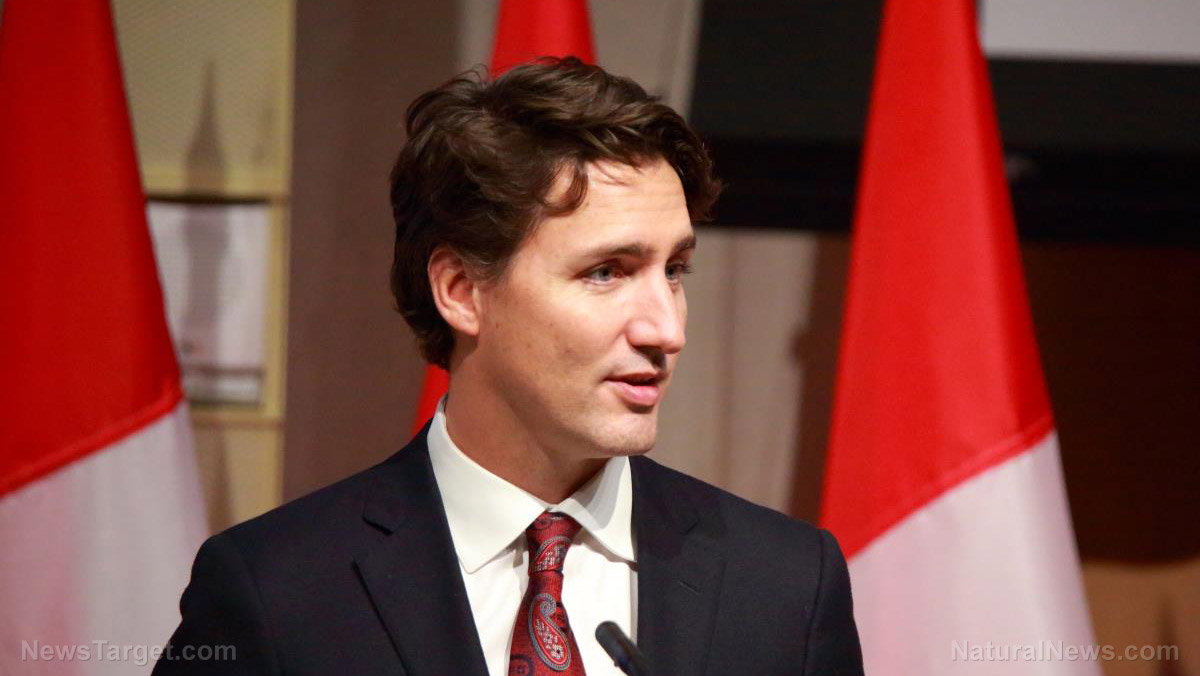
Food Shortages Coming: Farmers dismayed by PM Justin Trudeau’s push to implement “regulated fertilizer reduction” policies that would crush food production by turiya ..... Politics Debate Forum
Date: 7/27/2022 4:48:54 PM ( 28 m ago)
Hits: 117
URL: https://www.curezone.org/forums/fm.asp?i=2449540
0 of 0 (0%) readers agree with this message. Hide votes What is this?
Wednesday, July 27, 2022 by: Mary Villareal

(Natural News) Canada’s Prime Minister Justin Trudeau is ; S E T to implement “regulated fertilizer reduction” policies that the provinces and agriculture groups are pushing back against, as this could drastically reduce fertilizer use by 30 percent.
This push to restrict farmers from growing food the conventional way is the Liberal Party’s initiative to reduce greenhouse gas emissions in Canada by up to 45 percent by 2030. The government is refusing to acknowledge that nitrous oxide emissions could be reduced without reducing fertilizer use.
Not everyone is on board with the initiative. The provincial governments of both Alberta and Saskatchewan released a statement expressing their dismay over the proposed initiative.
In a press release dated July 22, the Saskatchewan Minister of Agriculture David Marit said the Trudeau government has moved on from its attack on the oil and gas industry and is setting its sights on Saskatchewan farmers.
Alberta Minister of Agriculture Nate Horner also said the world is looking to Canada to increase production and be a solution to global food shortages and that the Federal government needs to display its understanding of the situation. “They owe it to our producers.”
Ontario’s Lisa Thompson said provinces are disappointed by the federal government’s lack of flexibility and consultation regarding the target.
Several provincial governments and organizations representing farmers have already asked for emissions reductions from fertilizer to be measured via intensity – like how much food is produced compared to the amount of fertilizer used.
The Canadian government is demanding an absolute reduction in emissions, which could result in less food being produced at a time when the world is already suffering from shortages. (Related: Global rice production to plunge by 10%, hundreds of millions to be affected.)
The Western Canadian Wheat Growers group also commented on the development from the government, outlining the potential disasters that could occur if the guidelines are enforced, calling the proposal “contrary to the UN goal of elimination of world hunger by 2030,” adding that the requirements for the push are “not attainable.”
“Fertilizers play a major role in the agriculture sector’s success and have contributed to record harvests in the last decade. They have helped drive increases in Canadian crop yields, grain sales, and exports,” Agriculture and Agri-Food Canada said in a press release.
“However, nitrous oxide emissions, particularly those associated with synthetic nitrogen fertilizer use have also grown significantly. That is why the Government of Canada has set the national fertilizer emissions reduction target, which is part of the commitment to reduce total GHG emissions in Canada by 40-45 percent by 2030.”
This is a tacit admission that any attempt to lower emissions by reducing nitrogen fertilizer will lower crop yields over the next decade, hurting the agriculture sector and the farmers.
A report from Fertilizer Canada also noted that the Total Emission Reduction puts a cap on the total emissions allowable from fertilizer at 30 percent below 2020 levels. Because the yield of Canadian crops is directly linked to proper fertilizer application, this creates a ceiling on Canadian agricultural productivity well below 2020 levels.
Reduction in fertilizer usage could also result in massive income losses for farmers and their outputs could suffer. Fertilizer Canada has estimated a 30 percent absolute emission reduction for a farmer with 1,000 acres of canola and 1,000 acres of wheat, and stands to have their profit reduced by approximately $38,000 to $40,000 annually.
Fertilizer Canada also does not believe that forcibly decreasing fertilizer use could lower greenhouse gases. Instead, it could lead to carbon leakage elsewhere. (Related: World’s largest fertilizer manufacturer sounds alarm, says shortages are liable to last throughout 2023.)
Yet, Trudeau’s government is going forward with the move despite farmers’ concerns, leading to Farmers Forum questioning whether Trudeau is intentionally trying to cause a food shortage in the country, as he already previously told Canadians to prepare for such an event.
More at the Link: https://www.naturalnews.com/2022-07-27-farmers-dismayed-by-trudeaus-regulated-fertilizer-reduction.html
<< Return to the standard message view
fetched in 0.00 sec, referred by http://www.curezone.org/forums/fmp.asp?i=2449540